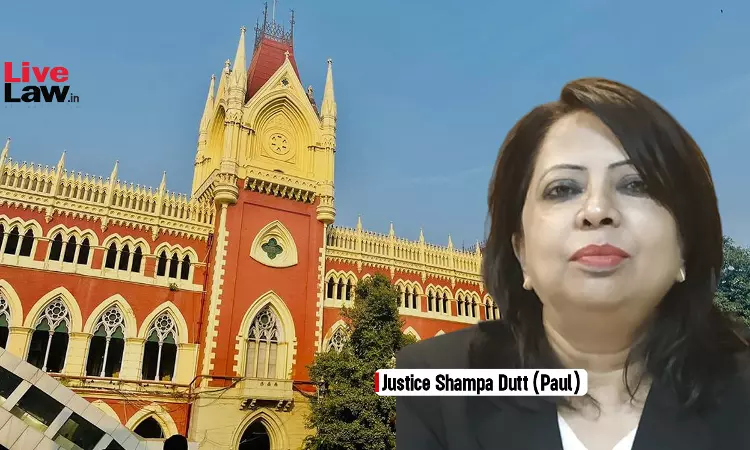- Home
- /
- High Courts
- /
- Calcutta High Court
- /
- Primary Purpose Of College In...
Primary Purpose Of College In Providing Education Being Overlooked Due To Political Influence; Hostile Atmosphere Harms Student Welfare: Calcutta High Court
Srinjoy Das
6 May 2024 7:19 AM GMT
The Calcutta High Court has recently laid down guidelines of 'professional standards' for college teachers in a revision plea filed by a teacher for quashing proceedings under Sections 499/500 IPC for allegedly defaming a colleague.A single bench of Justice Shampa (Dutt) Paul quashed the case and held that the hostile atmosphere of the college due to political influence, which led to one...
The Calcutta High Court has recently laid down guidelines of 'professional standards' for college teachers in a revision plea filed by a teacher for quashing proceedings under Sections 499/500 IPC for allegedly defaming a colleague.
A single bench of Justice Shampa (Dutt) Paul quashed the case and held that the hostile atmosphere of the college due to political influence, which led to one teacher making allegedly defamatory comments against another during an interview had led to the primary cause of education being overlooked, and overall led to a detriment in student welfare.
It was stated: It is very unfortunate that under political influence, the primary purpose to provide education is completely overlooked, such hostile atmosphere in an educational institution goes against the welfare (which is paramount) of the students whose future is in the hands of these colleges.
College teachers are expected to adhere to professional standards of conduct, which include:-
1. Respect for students: Treat students with dignity and fairness, fostering an inclusive and supportive learning environment.
2. Competence: Demonstrate expertise in their subject matter and teaching methods.
3. Integrity: Be honest and transparent in all academic and administrative dealings.
4. Professionalism: Maintain appropriate boundaries and behavior in interactions with students, colleagues, and staff.
5. Fairness and impartiality: Evaluate students' work objectively and provide constructive feedback.
6. Continuous improvement: Engage in professional development activities to enhance teaching skills and stay current in their field.
7. Collegiality: Collaborate with colleagues and contribute positively to the academic community.
8. Compliance with institutional policies: Follow college policies and procedures related to teaching, research, and student support.
Petitioner stated that she was appointed as the principal of the college in 2015 and prior to taking charge, the complainant was the teacher-in-charge of the college. It was stated that the Students Union of the college was backed by a particular political party which was unhappy with the petitioner's appointment and had threatened her to resign from her post on multiple occasions.
It was submitted that the petitioner had not given in to these demands and various union leaders of the college students were unhappy with the petitioner's stance and had even earlier filed false cases against her which were closed upon finding the allegations unsubstantiated.
It was stated that the complainant and her associates had distributed pamphlets containing hateful remarks about the petitioner and there were actions taken to ensure that the petitioner was implicated in some criminal case or the other.
Petitioner stated that the present proceedings were a counter-blast to the case filed by her against the Students Union members who had previously filed false cases against her to intimidate her.
Counsel for the complainant stated that the petitioner had made allegedly defamatory statements against the complainant in an interview given to the Bengali news channel ABP Ananda.
Court noted that the case was one of a dispute between two teachers of a college.
It perused the law around defamation as well as the exceptions to the same as laid down in the Indian Penal Code (IPC).
Reliance was placed on the Supreme Court case of Subramanian Swamy vs. Union of India, Ministry of Law and others, (2016).
Accordingly, the Court held that there was no material to show that any imputations had been made against the complainant with an intent to cause harm or with a belief that it would harm the reputation of the complainant, and thus the remarks would come under the ninth exception to Section 499 IPC.
Accordingly, it allowed the petition and quashed the proceedings against the petitioner.
Citation: 2024 LiveLaw (Cal) 110
Case: Dr. Sima Banerjee Vs Dr. Barnali Chattopadhyay
Case No: CRR 992 of 2022


